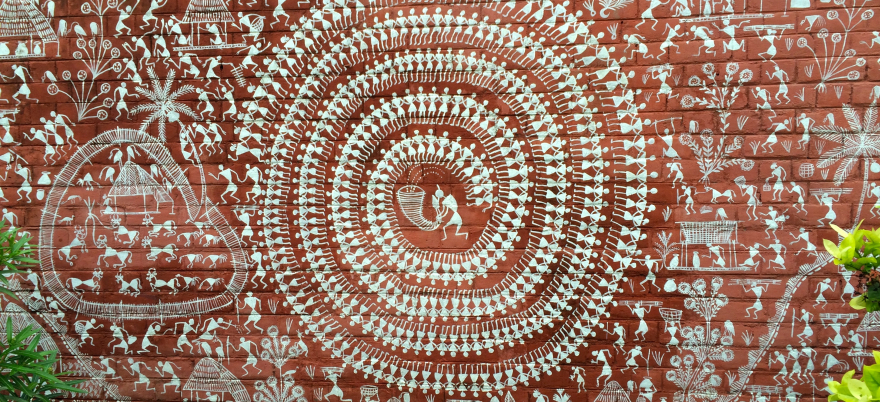It was around the year 2009 I started reading more on “anthropology”. As I attempted to understand/learn more about it, it started taking me on a fantastic that continues to this date. Learning about the various subsets of anthropology and applying them to study people, society, and culture has helped me broaden my perspectives on how all of these work together.
Anthropology has enabled me to view things at both macro and micro levels (can be called ’emic and etic’) and has guided me to appreciate things that are even considered too petty or eccentric. I think, my fascination for history, archaeology, evolution, the culture of a society and its impact on my psyche and persona, lead me to anthropology. So, what is anthropology?
Anthropology is a study of humans, human behaviour and societies. It studies all those things that make us human and approaches human experience in a broader sense to understand the different factors of that experience.
There are 4 major disciplines in anthropology:
- Archaeological anthropology
- Socio-cultural anthropology
- Physical anthropology
- Linguistic anthropology
There are also so many other disciplines where anthropology is applied such as media anthropology, economic anthropology, ecological anthropology etc.
Wait! Doesn’t that sound like the word “anthropology” could be dropped before any and every term? Well, that’s only partly true. Since anthropology is a study of human behaviour and society, it can be applied to almost every field where human behaviour, culture and intellect can have a direct impact.
Initially, I was very curious about archaeology and history, so naturally archaeological anthropology and socio-cultural anthropology appealed a lot to me.
Archaeological anthropology is what many think of as an Indiana-Jones type adventure; although, in most cases, it is not. Archaeology piqued my interest to dwell into history. History of the dead civilizations, the recurring patterns of events in history, and the nature of our current societies fascinated me and I devoured that topic. I began spending a lot of time reading free eBooks and articles until I also grew interested in socio-cultural anthropology. I had also started attending workshops and tours to witness 1000-year-old epigraphs in temples and other cultural domains.
Socio-cultural anthropology studies human beings in the context of social norms, cultures, and practices and its relevance and impact on individuals, groups and societies. There is a stark contradiction, between the old and modern civilizations as much as they are surprisingly similar. I grew indefinitely fond of how relevant the study is in the current sociological context. I started wondering about how the socio-cultural factors influence the form, behaviour and subjective experience of humans, and anthropology provided more insight into this.
As someone who often ponders about the value of human life and its purpose in the vast universe, anthropology gave me a sense of belonging. We are all the product of civilizations, behaviours, cultures that have evolved over millions of years, although we are not acting like it.
I have always had a profound interest in understanding human behaviour. Despite our effort to understand the human psyche, the undeniable truth is that the essential nature of human beings is not easily fathomable and comprehensible. Some people claim to have deciphered the very fabric that governs human nature when they identify some visible patterns.
They immediately collate, quantify and profile a human without understanding the layers that they cannot see and the transformations that are yet to occur. Their viewpoints are often subjective and their profiling does not usually offer practical solution to any of the conflicts. This is why we are startled by the behaviour of certain people and if there is a question that might lead to an answer, it is ‘WHY’?
Anthropology is guided by theories such as behaviourism and cultural relativism, and it helps us to make sense of societies by understanding human behaviour in a cultural context. Understanding people’s behaviour and practices in their own cultural terms eliminate the need for oversimplification and reductionism.
Often, the root of a people’s behaviour lies in what they want and what drives their “want”. As Maslow defined in his “Hierarchy of needs” – a psychology theory that helped understand/categorize needs – people’s need outgrow them at some point and drive them to a new set of behaviour through their basic ability to determine what is “need” and “want”. As I started reading a Franz Boas and Malinowski, the scope of anthropology and its significance in the current era dawned upon me; both of them were highly eminent ethnographers and fieldworkers. Boas and Malinowski believed that meticulous collection of data by well-trained researches is paramount to understanding their subject of study.
I love ethnography which involves the collection of data through various research tools such as participant, non-participant observation, interviews, questionnaires – intended to picture an objective view of society. It helps you develop critical and scientific outlook, approach and attitude to comprehend culture, social aspects and issues.
More about specific schools of thought and their impacts – in other posts.
You can read more about Ethnography and its benefits in a learning content here: Ethnography in Learning
